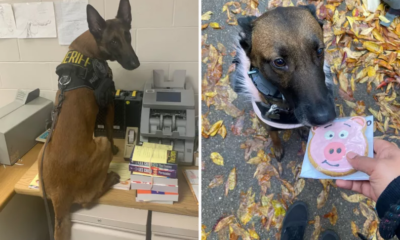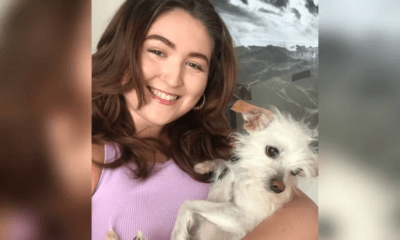Cute Animals
Helpful Updates on COVID Isolation Guidelines
Quick Smiles:
- Experts highlight that taking precautions after testing positive benefits both you and your loved ones.
- New recommendations stress using common sense: stay home when sick and mask up around others after isolation.
- Clear guidance is provided on returning to daily life, prioritizing your recovery and safety.
This year’s cold, flu, and COVID season could be tougher, with experts noting the emergence of a new flu variant and fewer people getting vaccinated.
Dr. Richard Martinello from Yale School of Medicine advises trusting your COVID test result and making recovery your top priority while helping prevent the spread to those nearby.
“It’s always a good idea to keep yourself away from others if you feel sick,” Martinello says.
Currently, most recommendations still support isolating for five days if you test positive, followed by several days of added precautions such as masking, especially if you’re returning to regular activities.
Dr. Geeta Sood from Johns Hopkins Bayview Medical Center explains that evolving immunity and reduced severity have made advice more flexible, but standard guidance remains.
During isolation, sleeping alone, using a separate bathroom, and ventilating your space—like with HEPA filters—can aid recovery and limit transmission.
Masks are not perfect, “but we confidently know that they do provide some benefit,” Martinello explains.
Returning to normal life depends on whether your symptoms are improving and you have been fever-free for 24 hours without medication. Afterward, wearing a mask and practicing good ventilation for five to seven days is advised to keep others safe.
Testing multiple times to leave isolation is no longer required due to test accessibility, Martinello adds. Counting days and using precautions are the best strategies now.
“For most people, the practical advice is to count the number of days rather than to retest,” Martinello says.
If you are not improving or worsening after several weeks, or you have alarming symptoms like trouble breathing or chest pain, reach out to your doctor right away.
If you continue to experience symptoms such as fatigue or brain fog long after recovery, you may be dealing with long COVID, which experts are still studying.
Staying mindful and following these refreshed guidelines will help you recover comfortably while protecting your community.

-

 Cute Animals2 years ago
Cute Animals2 years agoPuppy Love Patrol: Service Dog Swoons Over K9 Officer Neighbor
-

 Cute Animals2 years ago
Cute Animals2 years agoHugs, Hooves, and Happiness: Newborn Donkey Steals Hearts by Demanding Affection [Video]
-

 Cute Animals2 years ago
Cute Animals2 years agoWATCH: A German Shepherd’s Surprising Parenting Instinct for Lost Ducklings!
-

 Cute Animals3 years ago
Cute Animals3 years agoPetty Pup Pulls Off Hilarious Bone Heist [Video]
-

 Heroes2 years ago
Heroes2 years agoA Lost Dog’s Bark Leads to a Lifesaving Discovery
-

 Cute Animals2 years ago
Cute Animals2 years ago“Pure Love”: Adopted Rescue Dog Can’t Hide How Grateful He Is [Video]
-

 Cute Animals2 years ago
Cute Animals2 years agoTiny but Mighty: Cat with Dwarfism Becomes Internet Star as Owners Adapt Backyard for Her Comfort
-

 Cute Animals2 years ago
Cute Animals2 years agoAdorable Puppy Steals Hearts After a Tiring Swim [Video]